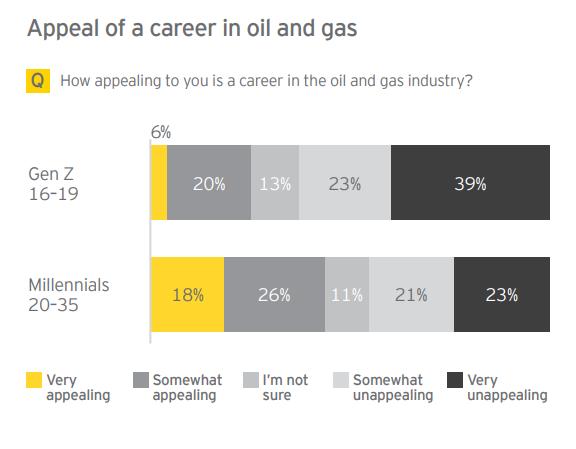
“Progress is impossible without change, and those who cannot change their minds cannot change anything” – George Bernard Shaw
The world is shifting towards cleaner, more sustainable sources of energy and the use of renewable energy technologies.
However, this should not be interpreted as the beginning of the end of ‘big oil’.
Instead, it should anticipate a transformation and transition of the oil and gas industry, a real and proper renaissance triggered by the inclusion of new renewable energy technologies and big tech innovation.
The coronavirus pandemic forced working patterns, business models and short-term forecasts to change overnight.
But to what extent has the crisis accelerated digital transformation efforts and which technologies are more in demand as a result?
Last month, BP published the 2020 edition of its energy outlook. Although the publication is more than 130 pages long, a single chart dominated all the media attention.
In it, BP’s economists analysed three possible scenarios, with one of them suggesting that peak oil demand may have been reached in 2019.
This was enough to trigger a wave of pessimistic articles calling for the end of the outdated oil industry.
But the media’s attention was misdirected and missed the point on how the oil industry is adapting to the 21st century.
The oil industry is increasingly perceived as an old-fashioned industry.
According to a survey by EY in 2017, 62% of young workers find careers in oil and gas unappealing.
Besides environmental concerns, young workers described jobs in the industry as unskilled, difficult, dangerous and even harmful to society.
This perception seems to have already started to affect the ability of oil companies to attract new talent.
Bloomberg reported that the number of UK graduates going into the oil sector is now the lowest in seven years.
However, there is a deep fundamental change happening already across the industry that could potentially revolutionise the industry and improve the image.
The inclusion of artificial intelligence (AI) has the potential to dramatically transform the industry into an environmentally cleaner more efficient one whilst simultaneously shifting the set of skills demanded by the industry towards more digitally intensive profiles.
COVID Catalyst: Big Oil is tapping Big Tech and renewable energy technologies
There are several examples of the digital and transformation happening already across the oil supply chain, in most cases through strategic partnerships between oil companies and technological companies.
COVID-19 has further accelerated this digital transformation. In a survey by Twilio, a whopping 97% of business decision-makers say that the COVID-19 pandemic has sped up digital transformation at their company.
And 79% of business decision-makers said their budget for digital transformation had increased because of COVID-19.
In terms of exploration, most oil majors and even national oil companies are analysing their geothermal imagery with AI algorithms to improve the prediction accuracy of underground reserves.
Examples of this are abound. Petrobras and Shell recently announced a collaboration with Microsoft for that purpose.
Similarly, Google and Amazon offer partnership schemes where they supply expertise and technology tailored to the oil sector.
Additionally, ExxonMobil is partnering with scientists from MIT to create a fleet of deep-water exploration robots that could effectively increase the amount of data for deep-water exploration areas.
In September 2020, IBM and oil industry services company Schlumberger partnered on a major digitalisation initiative involving the exciting technology of hybrid cloud computing.
Schlumberger CEO Olivier Le Peuch explained that the partnership would result in technology that epitomises the ongoing digital transformation of the oil sector.
The oil industry has traditionally relied on heavy-duty equipment like deep-hole drilling machines.
These devices were generally not connected to the internet or configured to work with more integrated, cutting-edge analytical systems.
On the oil production stage, companies are using natural language processing (NLP) to systematically extract and process data from unstructured oil well production reports.
In addition, by installing sensors and valve systems or even using satellite readings, companies are immediately detecting and even predicting methane leaks in production sites.
NVIDIA and Baker Hughes recently announced a collaboration to collect data from sensors embedded in machines along the supply chain and then analyse the data through AI algorithms to identify potential gains in efficiency and risk management.
In the processing and refining phase, a mix of sensors installed across refineries or with specialised drones companies can detect carbon leaks and measure unusual vibrations that later help them to reduce maintenance costs and improve the safety in refineries.
On the oil trading side, OilX, an oil data analytics company is leveraging all the newly available data sets, from satellite readings to vessel tracking technologies to replicate a digital twin of the oil supply chain that enables users to identify in real-time relevant changes in patterns in the crude market.
The implementation of these new technologies will not only increase the productivity of the oil sector, but it will also dramatically change the skill set demanded by the industry.
The design, implementation, and maintenance of these tools will require professionals trained in data and computer science.
The implementation of AI technologies is revolutionising the oil and gas sector, by making it cleaner, safer and more efficient.
However, as a by-product of this implementation, the required profile for workers in the industry will shift towards more technologically trained individuals.
This injection of young talent could potentially allow the oil industry to evolve and embrace renewable energy technologies to help maintain its position.
Recommended for you


